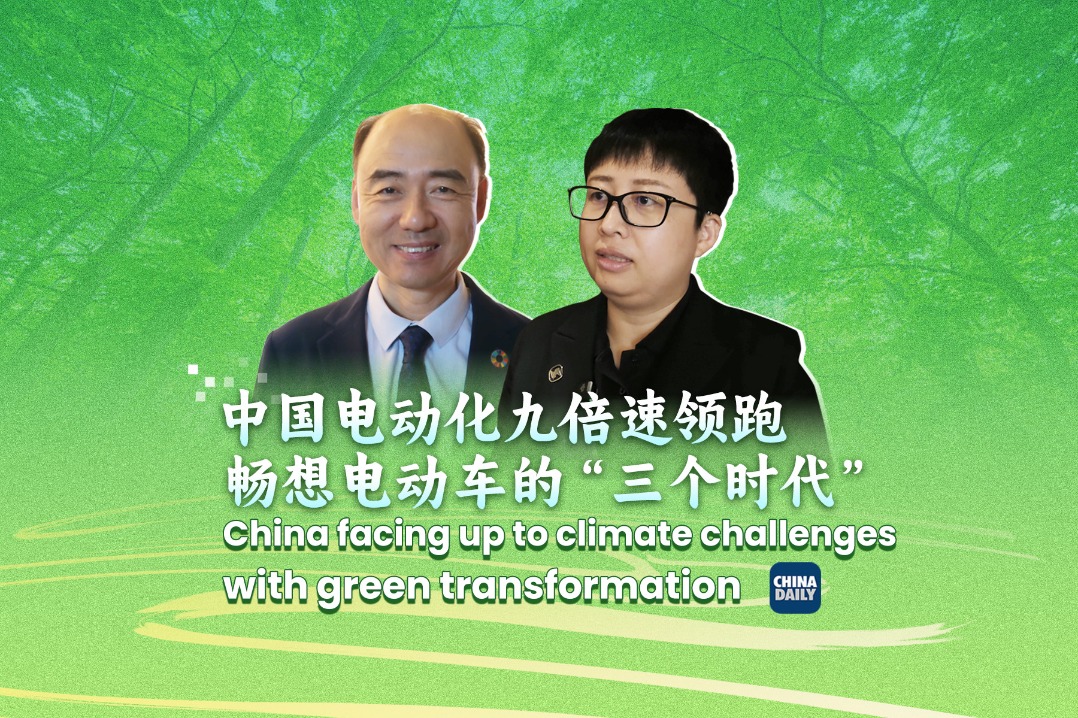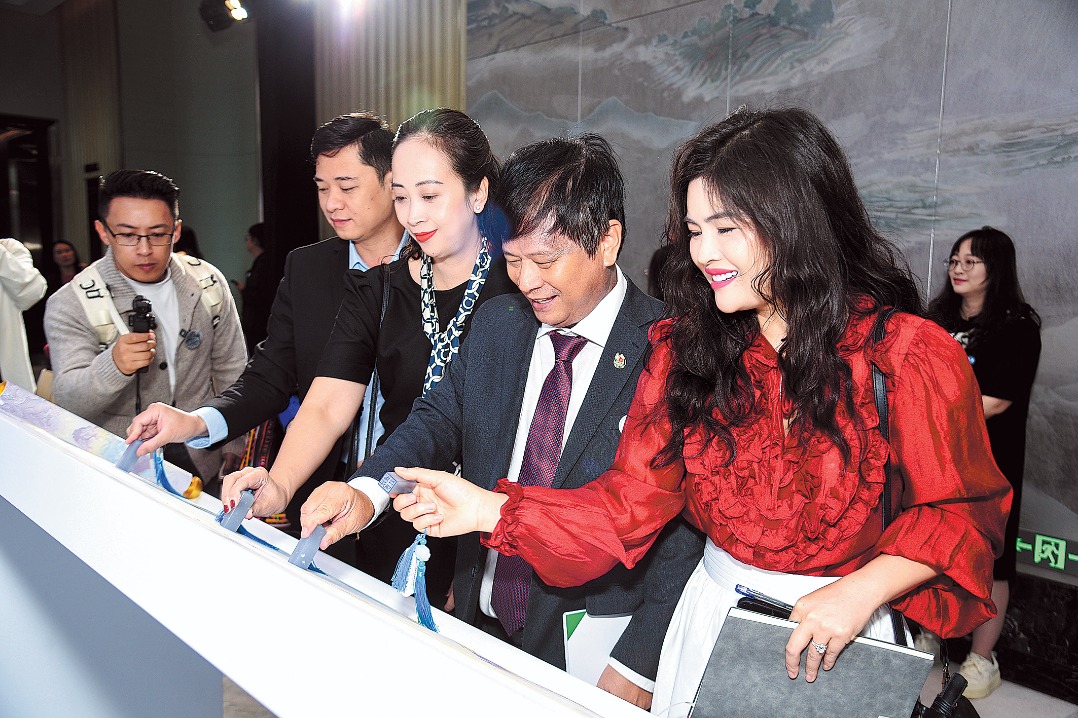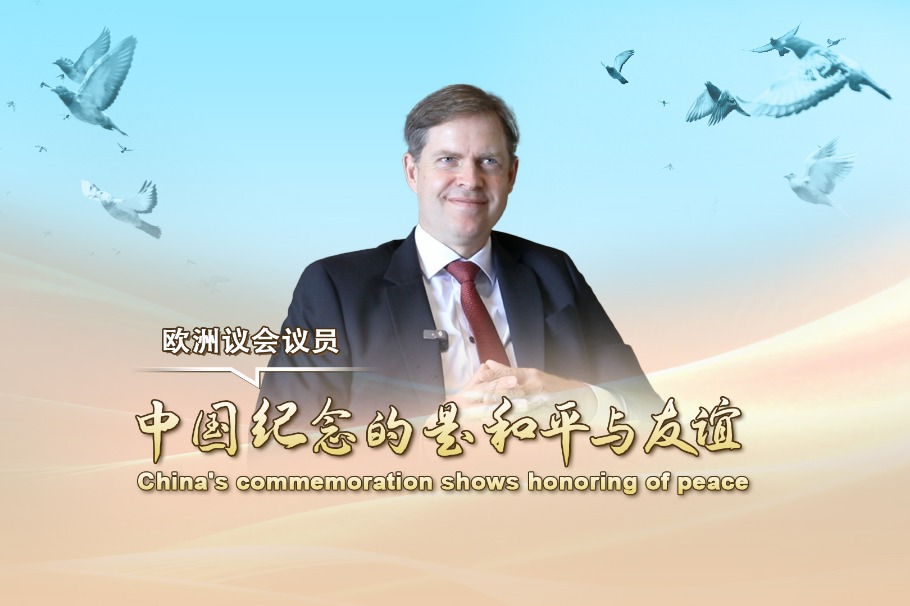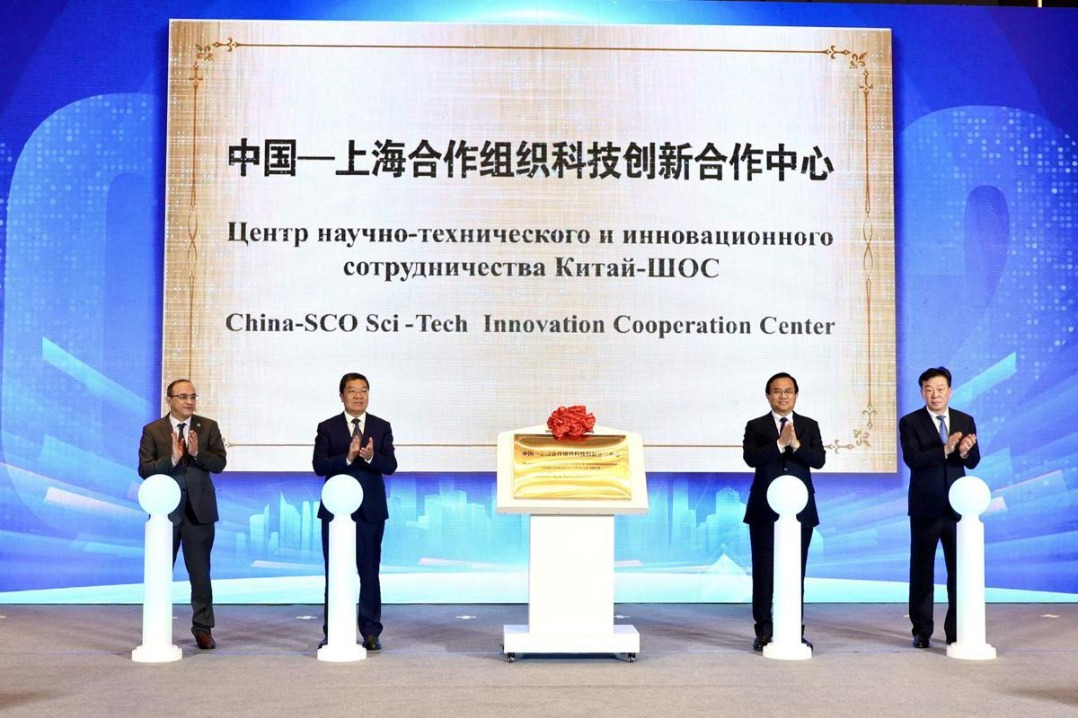Erroneous conclusion


Europe has difficulty in accepting that the paradigm shift it perceives signals a reversion to historical normality
European policymakers and intellectuals nowadays tend to frame today's global turbulences, such as the crises in Ukraine and the Middle East, the intensifying US-China rivalry, transatlantic division and fragmentation of global governance, etc, as evidence of a "paradigm shift" in the international order. According to this interpretation, the international order is undergoing a fundamental rupture, moving away from the existing paradigm of liberal internationalism that has structured global affairs since the end of the Cold War. The "paradigm shift" discourse reveals Europe's intellectual inheritance from the post-Cold War moment, when the liberal paradigm appeared to offer a universal model for global governance.
Europe's notion of a "paradigm shift" is actually a return to historical normality in international politics. The so-called liberal international order was less a universal paradigm than a self-ascribed and imposed construct, rooted in the West's interpretation of the post-Cold War unipolar moment as the "end of history". This order has never been stable or truly global. The "rules-based order", anchored on US hegemony, democratic values and free markets, remains limited in scope and never achieved universal acceptance. Yet it is through this paradigm that Europe continues to frame global challenges.
Europe embraces the international liberal order with conviction. For European elites and academics, the end of the Cold War seemed to confirm not only the superiority of liberal democracy but also the inevitability of interdependence, integration and rules-based governance — with the European Union positioning itself as both norm-setter and exemplar. This confidence underpinned the EU's expansionist vision of order, advancing liberal norms through enlargement and neighborhood policies. Yet this vision is founded on fragile post-Cold War assumptions: the permanent absence of great-power rivalry, the universality of liberal values and the unwavering reliability of the US security guarantee.
Europe's post-Cold War confidence in the universality of liberal values — particularly democracy, rule of law and human rights — is central to its self-conception as a global "normative power". Yet in practice, the EU has never implemented these principles consistently across global issues. These inconsistencies reveal that the EU's liberal universalism has been more of a strategic instrument than a genuine universal principle. By adopting double standards, Europe has weakened its moral authority and undermined its claim to represent a universal paradigm, highlighting why the "liberal order" has always been more fragile and parochial than Europeans believe.
The current global turbulences and the multiple challenges that Europe is facing reflect the reassertion of the classic dynamics of power rivalry, rather than a radical departure from the past. For the US, the recalibration of its global commitments also reflects a historical pattern: oscillating between liberal internationalism and hard-nosed balance-of-power politics. Washington's recent prioritization of "America First" strategic competition over liberal order-building underscores this return to "normality". Thus, what appears as a rupture to Europe is continuity from a broader historical perspective.
Europe's perception of a "paradigm shift" is rooted not only in its intellectual heritage but also in its material limitations. The EU has long relied on soft power, economic statecraft and normative influence. This reliance functioned during the unipolar moment when the US security guarantee underwrote Europe's liberal project. Today, the return of hard power competition and rivalry has exposed Europe's strategic vulnerability.
Europe's liberal paradigmatic mindset finds its most potent expression in the claim that it operates as a regulatory and rule-setting normative power. The EU exerts influence by exporting its values and standards, embedding liberal principles such as democracy, human rights and the rule of law into its external relations. Through what scholars call the "Brussels Effect", EU regulations in fields ranging from environmental policy to data protection acquire global reach, shaping practices well beyond its borders. This capacity to universalize rules through market size, institutional frameworks and conditionality mechanisms embodies the idea that the EU's distinctiveness lies in its ability to transform international politics through the diffusion of norms.
However, Europe currently plays only a limited role at the forefront of the digital economy, information technology, new energy and artificial intelligence development. But ironically in these areas, the EU has produced an extensive framework of laws and regulations, which is seen as self-defeating. A central critique is that Europe often moves ahead with ambitious regulatory instruments such as the AI Act and the Digital Markets Act in domains where it is not even a leading actor. This misalignment between regulatory ambition and technological capability risks stifling competitiveness and undermining Europe's position in the global economy.
The true transformation, "paradigm shift" in Europe's term, then, is not only of the international system itself but of Europe's place within it. German Chancellor Friedrich Merz has recently acknowledged that Germany's economy is facing a "structural crisis", not merely a temporary slowdown, conceding that restoring economic momentum has been more difficult than he initially anticipated. This reflects deeper challenges: high energy costs following the end of cheap Russian gas, demographic pressures, and slow adaptation to the digital and green transitions. Germany's difficulties undermine Europe's broader competitiveness, given Berlin's centrality to the EU economy. Italy's Prime Minister Giorgia Meloni recently issued a sharp critique of the EU, arguing that the EU is "incapable of responding effectively to the competitiveness challenges posed by China and the US" and is "increasingly condemned to geopolitical insignificance". Her remarks capture a wider sense of frustration across EU member states that Europe lacks both the agility and the strategic tools necessary to compete in a rapidly shifting global environment.
Instead of viewing current dynamics as a paradigm shift, the emerging international order is better understood through historical patterns such as multipolarity, strategic competition, technological rivalry, fragmentation, security dilemmas and the resurgence of nationalism. These features are not new; they echo recurring themes seen throughout the long history of the rise and fall of international orders. The powers are increasingly engaged in transactional bargaining, exchanging concessions and negotiating spheres of interest. The ongoing Ukraine crisis and the tariff war, as well as the constant shifting alignments in the Global South illustrate this transactional logic.
Moreover, the emergence of middle powers, such as Turkiye, India and Brazil, further highlights the multipolarity of the global system. These actors are pursuing flexible alignments in line with their national interest, resisting pressure to fully join either Western or non-Western blocs. For them, the liberal order was never universal, and today's "disorder" is simply a historical continuation of long-standing practices of balancing and hedging.
In conclusion, Europe has difficulty in accepting that the "paradigm shift" signals a reversion to historical normality. The liberal international order was never a universal paradigm but a temporary construct, grounded in Western triumphalism and sustained by US power. Today, the unraveling of those assumptions has left Europe strategically disoriented.
The author is a Yunshan leading scholar and director of the European Research Center at Guangdong Institute for International Strategies at Guangdong University of Foreign Studies, and an adjunct professor of international relations at Aalborg University, Denmark. The author contributed this article to China Watch, a think tank powered by China Daily. The views do not necessarily reflect those of China Daily.
Contact the editor at editor@chinawatch.cn.


































